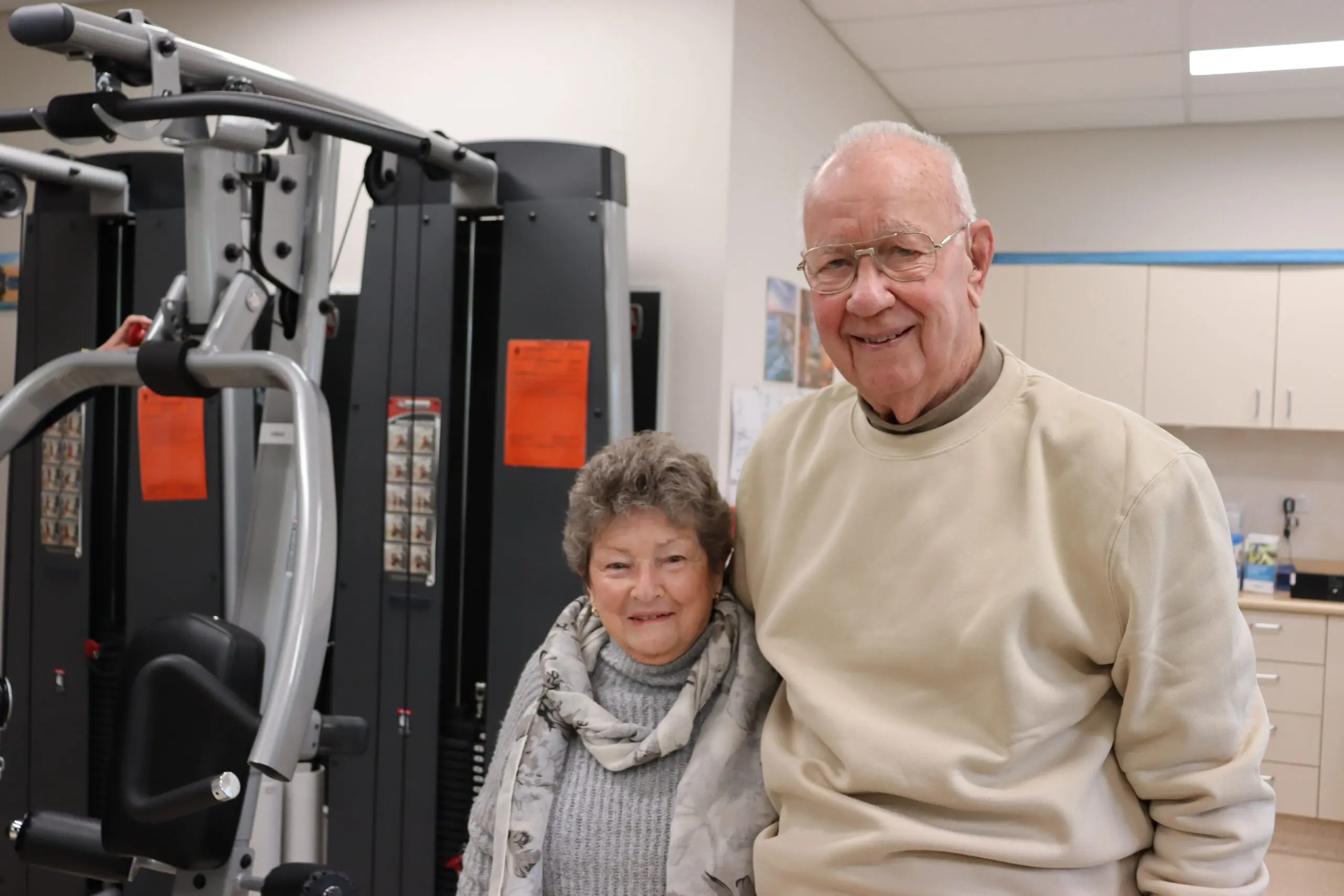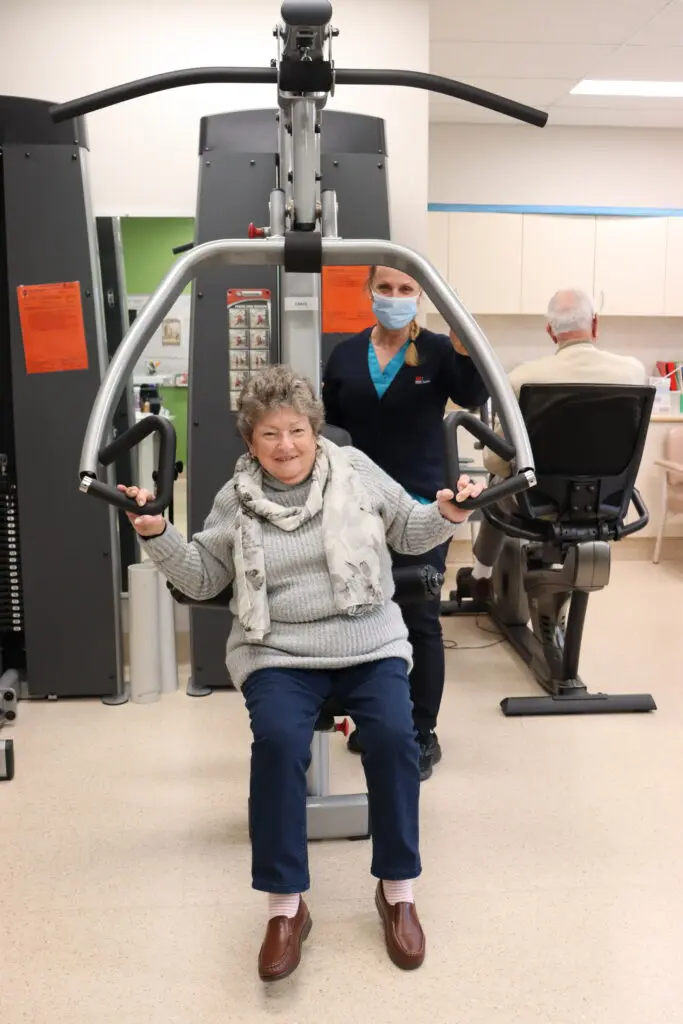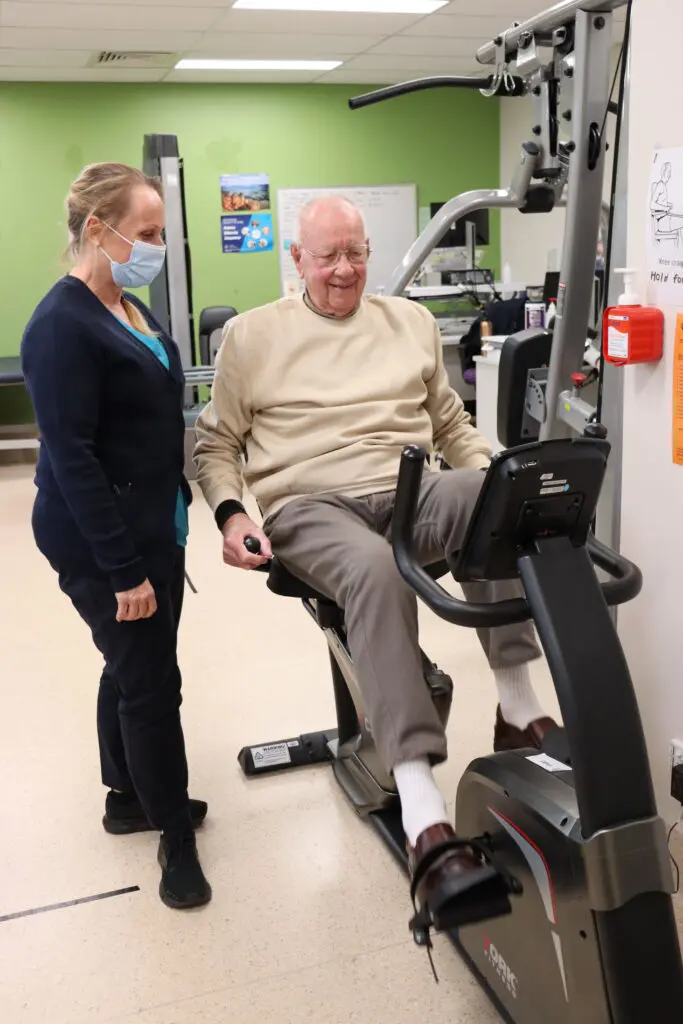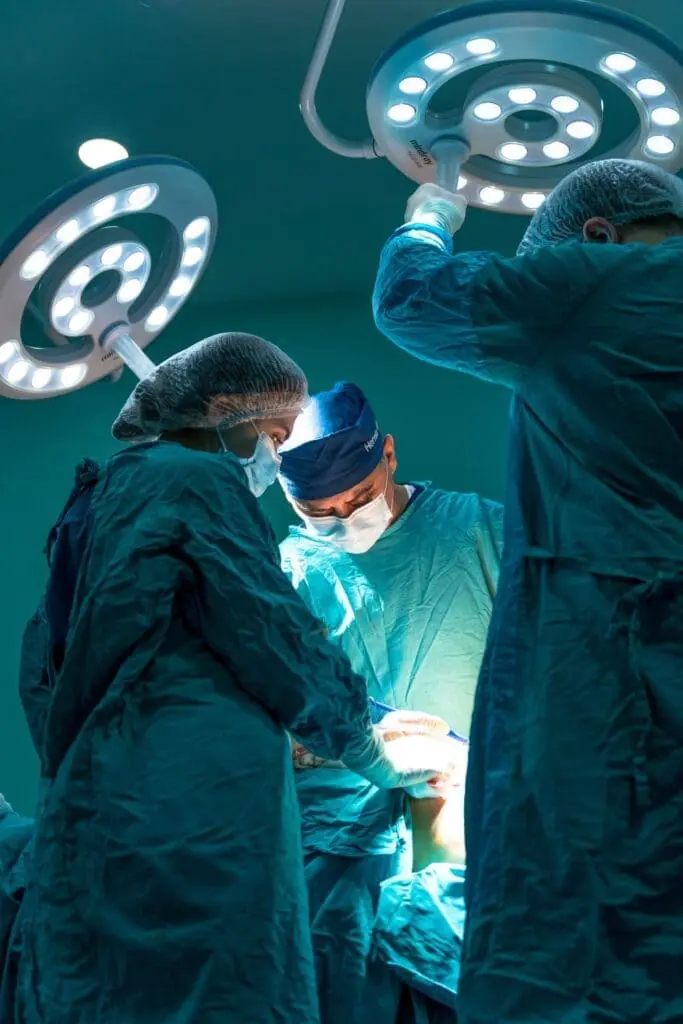
John and Dorothy who are in their 80’s, didn’t realise they were frail until they attended the CAReS clinic at Ryde Hospital.
John is 85 years-old and has led an active and healthy life being in the NSW Police force for over 40 years, rising to the rank of Superintendent. He was also a member of the local surf club for many years, played golf and in his later years, took up lawn bowling.
“Over the last few years, I’ve had both knees and a hip replacement,” said John. “I had to give up bowls after my knee operation and that was when I noticed my mobility was declining.”
During a consultation on his decreasing mobility, his GP suggested he might get some benefit from going to the Community Aged care and Rehabilitation Service (CAReS) rehabilitation clinic at Ryde Hospital. John was reluctant as he didn’t think he needed that type of assistance but agreed to give it a go.
Not all older people are frail and not all people living with frailty are old.
The purpose of CAReS is to reverse frailty. However, it is important to identify frailty early to combat the condition and its effects to enable older people to have better health outcomes, to live well at home and improve their quality of life.
Frailty is associated with increased mortality, hospitalisation, functional decline and admission to long-term care. When frail older people are admitted to hospital or require surgery, their outcomes can be much worse compared to healthy individuals. Therefore, one of the aims of CAReS is to try and ensure older people avoid hospitalisation.
CAReS offer an integrated aged care service for people over 65 years of age with a multidisciplinary team of specialist doctors, physiotherapy (including hydrotherapy); nutrition and dietetics; occupational therapy; speech pathology and social work.
“Our service is tailored to the individual to ensure that clients see the right therapist at the right time,” said Rachael, Manager of CAReS at Ryde Hospital.
Each client is screened for frailty which includes a physical assessment of their functional ability as well as a FRAIL scale test to identify their level of frailty. This test measures Fatigue, Resistance, Ambulation, Illness and Loss of weight with scores from zero (robust) to five (frail). These assessments help to identify those at risk and the targeted interventions and therapies they could receive to “future proof” them.


After John’s initial assessment he had an appointment with physiotherapist Helen where they discussed his results, his medical condition and what he wanted to get back to doing as part of his lifestyle. Then they were able to make a plan that helped John get the most out of the program.
“When Helen said my overall condition was frail, I nearly fell off my chair,” said John.
Helen suggested to John that he would benefit from the Fit and Strong six-week fitness program which targets frail and pre-frail people with a focus on gaining strength, balance and endurance. The aim is to teach clients how to exercise safely, so they are confident in continuing their fitness program at home or at a gym, beyond the program.
John also met with other members the CAReS clinic team including dietitian Chloe who provided him with information on the quantities and types of foods he should be eating; physician and geriatrician Dr Tam who evaluated his medications; as well as speech pathologist Bianca who address concerns John had with swallowing food and fluids.
John commenced the Fit and Strong program with a few 1:1 sessions before joining the small group class and meeting other “gym buddies”.
“You build up a rapport with others in the room,” said John. “We encouraged each other which helps the rest of the people in the class do the exercises.”
During a visit, Helen noticed John assisting his wife Dorothy down the stairs.
“My concern was if one falls, they will both fall,” said Helen.
As Dorothy was unsteady without a walking aid, it was suggested to her that she needed to join the program as well.
Like John, Dorothy was initially hesitant and said she didn’t want to do exercises with old people. However, when John told her he was starting to see the benefits of the program, she relented and now they were both attending classes.
The physiotherapists watch over the classes providing clients with the freedom and independence to gain confidence to do the exercises.
“It’s about realising that your body is not good as it once was, and that you need to do something about it,” said John who credits the physiotherapists, Helen and Karen, for giving them the confidence to push themselves to higher levels in the program.
“They would say do 10 and after I did them, I thought I had finished. Then they said now do another 10!” laughed John. “Mind you, we’re both in our 80’s and it wasn’t easy!”
As their confidence grew in using each piece of equipment, they finished their routine quicker, and soon they both saw the benefits as they felt fitter and stronger, particularly in their leg muscles.
“I’m glad I came along,” said Dorothy. “You want to do it to keep your body fit, as you don’t want to go back to where you were.”
Karen spoke with Dorothy about her mobility as Dorothy said she had been too scared to go for walks in case she fell, and Karen recommended she use a walker.
While a walker can be seen as a negative, there are many benefits – a walker can improve your independence, enabling you to walk more in public and thereby receive more exercise.
Occupational therapist Katherine visited John and Dorothy for a home safety assessment and recommended a number of aids were implemented such as grab rails near the external doors, ramps and a rail in the shower and toilet.
“The extra rails make our life easier. You don’t realise the hazards when you’ve lived in the same house for 58 years,” said John.
Before the program, John used a walking stick but couldn’t walk long distances and had experienced a few falls at home as his legs were so weak. Due to the program, he has gained strength, and can move around the house and yard without his walking stick.
As part of the CAReS service, they have a social worker who can assist in accessing and managing services to support people who are experiencing loneliness and isolation in the community.
“People don’t like being told they’re frail, but we like to see ourselves as life enhancers,” said Rachael.
After starting the program with a FRAIL Scale score of five, John and Dorothy both finished the program with a score of one, which they are very happy about.
“The CAReS program is just unbelievable,” said John. “The only thing it hasn’t improved is my hearing! We’re trying to be as independent as we possibly can, and we can see the benefits in the program. I recommend it to all our friends!”
If you would like to support the Ryde Hospital and say thanks to healthcare staff for the care they provided to you or a loved one, please make a donation.
